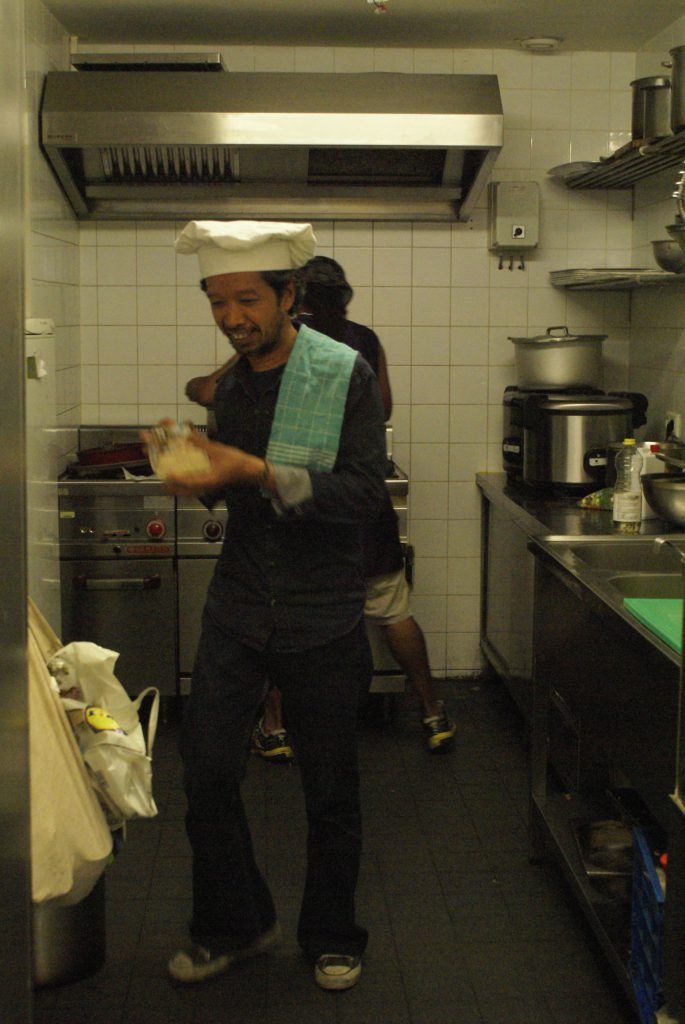In Italy, illegal immigration is a crime. However, besides asylum, there are more ways by which illegal migrants may acquire a legal status. Things are quite different in The Netherlands. According to Worldhouse, an NGO promoting the rights of undocumented migrants in Amsterdam, “the Netherlands is strict compared to Italy.”
Irregular Migrants
UNESCO defines irregular migrants as ‘people who enter a country, usually in search of employment, without the necessary documents and permits’. Federica Armandillo, the open house coordinator of Worldhouse, argues that irregular migrants in the Netherlands might risk repatriation or illegalization. “Dutch immigration laws are quite strict,” Armandillo explains. “The unskilled labor market is completely closed for migrants from outside the EU, and many asylum seekers cannot pass the strict ‘burden of proof’ for a refugee status.” She also points out that other forms of access to legal stay, such as family reunification, are very restricted. Therefore, if extra-communitarian migrants do not belong to any of these categories, there are chances that they remain undocumented. Armandillo: “In fact, also the humanitarian permit in the Netherlands is restricted only to a small minority.” As an Italian, she points out that “in Italy, the same permit becomes a way by which quite some undocumented are regularized.”
Labor and Housing
The lack of permits in the Netherlands impedes regular access to the labor market and the housing system. According to the Worldhouse’s website, only in Amsterdam there are about fifteen thousand undocumented migrants, unable to access regular jobs. Such situation requires undocumented migrants to rely on other, invisible networks, in order to enter, for example, the black labor market. However, trying to earn a living in the black market is neither safe nor easy. As the Worldhouse’s coordinator explains “controls are strict and employers can get fined for several thousand euros if proved to have employed someone irregularly.” Similar challenges need to be faced when it comes to finding a place to live and sleep in, when undocumented migrants cannot legally sign a rent contract in the Dutch public housing system.

However, as Federica explains, “since 2014, the Dutch government has the obligation of providing at least night shelter for undocumented migrants.” This is a relatively late step forward in Dutch legislation, as the social exclusion of undocumented migrants dates back to the 90s. It is indeed in 1998, after the introduction of the Linking Act, that it became virtually impossible for undocumented migrants to access the market and public housing compared to previous decades. In fact, the debate on undocumented migrants got an enormous impulse only in September 2012, when the group We Are Here manifested for undocumented migrants and rejected asylum seekers’ rights in The Netherlands. “A debate that is still ongoing,” Federica explains. For example, “the criteria of who can and cannot be in the shelters need to be defined and Dutch cities have different policies on that matter.” While other Dutch cities provide shelter for twenty-four hours, Amsterdam provides only night shelter, which Armandillo attributes to a more conservative political leadership.
Thriving Civil Society
In times of debate, Worldhouse contributes to Amsterdam’s civil society, aiming to inform undocumented migrants about their basic rights and the changes in Dutch immigration policies. Meanwhile, the NGO aims to ‘create a place where undocumented migrants find again the leadership in their life, empower themselves and strengthen their networks in collaboration with locals and volunteers’. And in times of debate, a thriving civil society concerned about the realities of undocumented migrants becomes fundamental.
